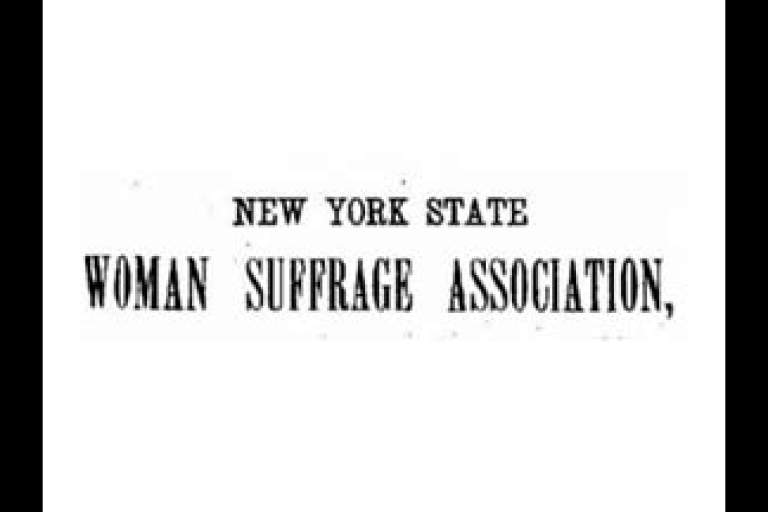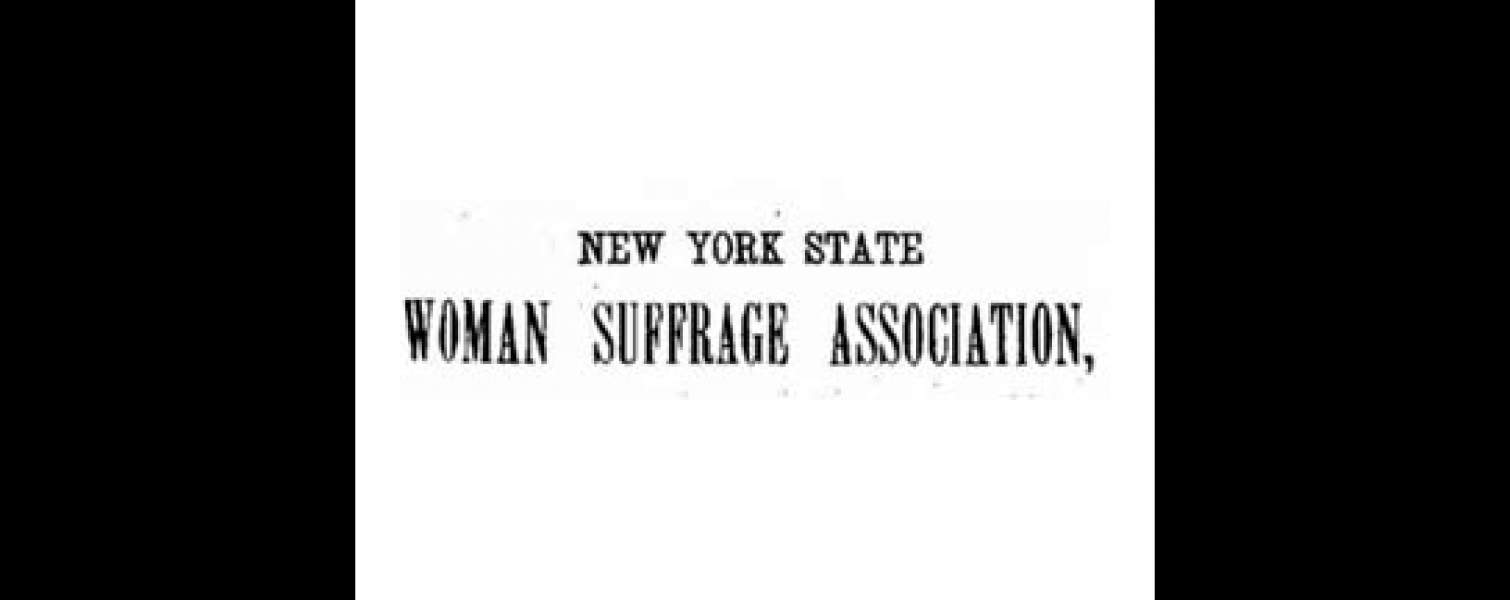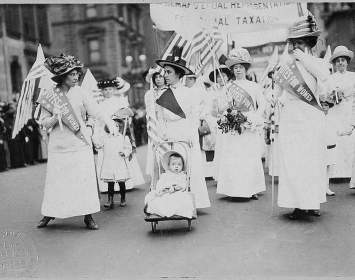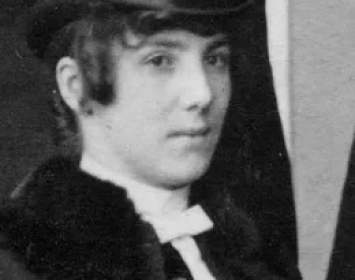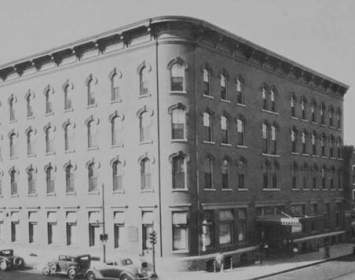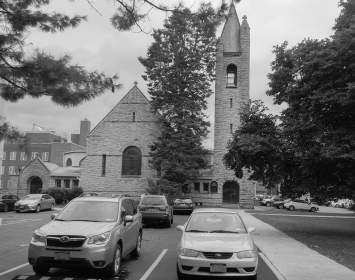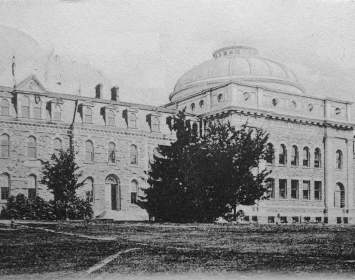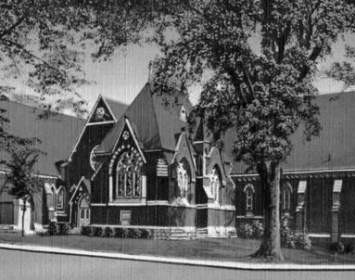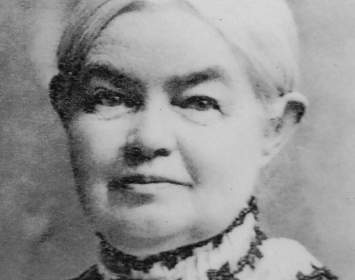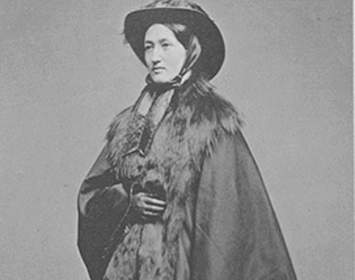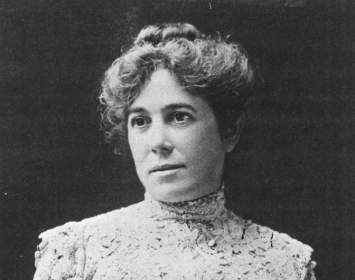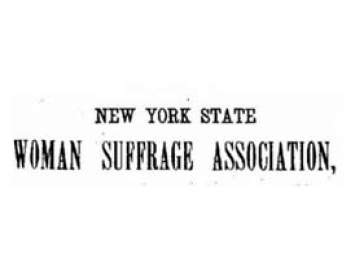The forty-third annual convention of the New York State Woman Suffrage Association (NYSWSA) was held in Ithaca on Tuesday through Friday, October 31–November 3, 1911. Approximately 200 women delegates attended the convention. Ithaca was chosen as the convention site because in 1908, the local Political Study Club (an independent pro-suffrage organization) received a prize for the “largest increase of membership” among local suffrage organizations in New York State.
The Ithaca Hotel served as the convention headquarters. First Baptist Church served as the venue for all public sessions.
On Tuesday, October 31, proceedings opened with a private meeting of NYSWSA's Executive Committee at First Baptist. The first public session began at 2:00 p.m., also at First Baptist. NYSWSA president Harriet May Mills gave the principal address, noting that during the year to date, the states of Washington and California had adopted woman suffrage after vigorous campaigning. (Nineteenth-century practice was to use the singular, woman's; later practice was to use the plural, women's.) Concerted activism was yielding slow progress, Mills reported; though the state house still had not acted on a suffrage bill introduced after the failure of the Constitutional Convention to implement suffrage, the state senate had advanced such a bill to its third reading. (That bill failed; New York enacted woman suffrage only in 1917.) “The successes of the past year are great,” Mills declared. "They warrant more in the near future and fill us with fresh courage as we journey toward the promised land of freedom and equality."
On Tuesday evening, a reception was given by the Political Study Club of Ithaca at the home of Juanita Breckinridge Bates, a locally prominent suffrage campaigner.
On Wednesday, November 1, delegates convened again at First Baptist to conduct routine business. County groups made their reports. Helen Brewster Owens, chair of the press and resolutions committees, introduced a series of resolutions repeating the call to strike the word male from the state constitution.
National-level suffrage leaders Inez Milholland and Anna Howard Shaw, scheduled to speak on Wednesday, were delayed in reaching Ithaca. Millholland (like California delegate Mary Morrison) never made it to Ithaca at all.
In the afternoon, there was a concert at Sage Chapel on the Cornell Campus and a talk by Jacob Gould Schurman, Cornell’s president.
Schurman made a lackluster speech giving mere lip service to the idea of woman suffrage. At one point he conceded that “Women have just as much right to vote as men, if they want to vote.” In a response, Mills countered that “women should have the ballot whether they wanted it or not,” and that in fact women “are determined the constitution shall read: Every citizen shall vote.”
On Thursday, November 2, the public session began, again at First Baptist, with an organizers’ conference. This was a workshop where local-group presidents, treasurers, corresponding secretaries, and the like met in separate rooms to sharpen their skills. Afterward, delegates reconvened in a plenary session to elect officers for the coming year. Prominent regional activists Emily Howland, Ella Hawley Crossett, Eliza Wright Osborne, and others spoke in memory of revered Geneva campaigner Elizabeth Smith Miller, who had died on May 22, 1911, aged eighty-eight.
National suffrage leader Anna Howard Shaw, having belatedly arrived, delivered her address on Thursday evening before an overflow audience at First Baptist.
On Friday, November 3, there was a brief general meeting at First Baptist, beginning at 9:00 a.m., to conclude unfinished business. At 10:00 a.m., NYSWSA's Executive Committee convened at the Ithaca Hotel, after which the forty-third annual convention of NYSWSA drew to a close.
Thanks to Patricia Longoria, Carol Kammen, and Elaine Engst for research assistance.
